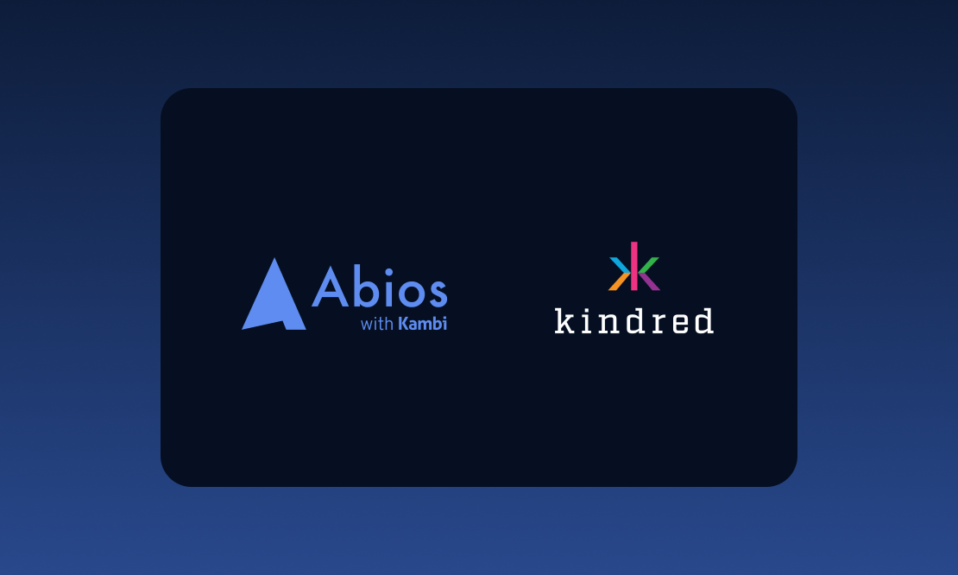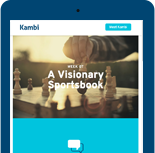

Sports-betting is the fastest growing gaming category.Maybe that’s because it is more exciting than any other games-of-chance category, or maybe because it has so much appeal to young adults, or maybe because it delivers a longer-play gaming experience.
Kambi’s focus is on supporting the uncompromising standards of government-gaming operators in the highly regulated markets. Understanding the players, empathising with their needs and exceeding their expectations are what make Kambi’s Sportsbook so successful.
Joni Hovi has been dedicated to the mission of government-lottery, with a focus on sports integrity field, for more than thirteen years. Joni joined Kambi in January 2016 and is applying his expertise and experience in the government sector to support Kambi’s mission to be the most progressive sports-betting partner to government regulated-lotteries.
Paul Jason, PGRI: Are current regulatory structures effective at ensuring that all sports betting operators pay their taxes and comply with all laws? And how do they vary from one jurisdiction to another?
Joni Hovi: Regulations are important to protect the consumer, to preserve the integrity of the market, to minimize fraud, money-laundering, and corruption, and to facilitate the collection of taxes. An effective regulatory structure should require transparency from the operator to enable auditing and controls to be effectively executed by the regulator and agents of the government. It should also enable the operators to conduct business, and serve the consumer with efficiency and effectiveness as well. But each jurisdiction is different and may have different approaches to how these objectives are best accomplished.
Kambi is strictly B2B, so our customers are the operators of sports-betting. Our contracts require that our customers respect the laws of the consumptive jurisdictions where regulatory framework is in place e.g. no customer of Kambi is allowed to accept sports bets from USA.
Further to this Kambi is, for instance, one of the few certified B2B operators today in Italy. Kambi is proud to be a member of the World Lottery Association (WLA), European Lottery Association (EL) and Corporación Iberoamericana de Loterías y Apuestas del Estado (CIBALAE).
Sports-betting is much more complicated than selling lottery tickets. Since Lottery’s reputation for integrity is its most valuable asset, operational excellence is even more central to sports-betting than to any other gaming category.
J. Hovi: The operation of sports-betting is very data and technology-intensive. Protection of transaction data and confidential player information is vital. Effective standards and mechanisms to ensure that all this data is protected have not been established. It is also important that the local regulator oversees the betting operations in order for them together with the betting operators and their suppliers to follow the up in case there is any doubt on match fixing at a later stage. The industry knows and respects and appreciates that Kambi excels this aspect of operations.
Furthermore when it comes to sports-betting, almost all jurisdictions have a multiple operator and licensing system model. In order for government-lotteries to have a positive impact on the sports-betting industry, they must have an offer that appeals to the consumer. They must offer a competitive value proposition and prize-payout percentage. In Germany, for instance, the lack of an effective regulatory and licensing regime has resulted in the lottery share of the sports-betting market to plummet from over 60% in 2006 to less than 5% today. That not only harms the lottery and its beneficiaries, it is not good for the industry or the consumer. Government-lotteries have a positive influence for society and the consumer. They should be given the tools and the ability to compete in the market-place. Finland in a monopoly environment and Denmark again in a licensed environment are doing much better because the government makes a special effort to ensure that they are equipped to compete and meet the needs of the market-place.
Explain some of the different types of sports betting. And how we got to this point where live-betting has become so popular.
J. Hovi: The constant development of technology has enabled operators to deliver a much richer sports-betting experience. It used to be that a sports-bet was on who won a match, and who beat the point spread. Now you can bet on countless moments that happen during an event, from who scores first to when time-outs will be called or when the next point in basketball is made. For instance, during the FIFA World Cup we had more than 200 different betting choices on each football/soccer match.
Kambi manages more than 170,000 in-play events a year now, and a small portion of those are actually televised. But through Kambi’s platform, we empower our operators by enabling them to live stream sporting events. For instance, Philippine basketball is our fourth most popular basketball league for our streaming service because they are played at times of the day where there’s not very much else going on.
The rich variety of live-action betting options would certainly seem to be more exciting than the pre-match fixed-bet play-style.
J. Hovi: The sports player can now bet on each single point in e.g. a tennis match. In football/soccer we now have bets on the next throw in. We are always testing more and different betting options. In American baseball, for instance, we are testing to see if players want to bet on every single pitch. What are the odds of the batter reaching first base on any given pitch? The industry is definitely moving in this direction. Consumers are interested in instant play and live-action betting as it is fast and entertaining. Here the speed of a single bet has become almost instant. Due to this speed only a few companies can actually offer this service in a reliable way since it requires not only specific sports expertise and man-power, but also sophisticated technology that is again underpinned by our intelligent data modeling tools.
Lottery people like me tend to think of the fast-play/high prize-payout/low-margin model as being more like gambling, and therefore perhaps more likely to lead to problem gambling. But it occurs to me that it also can allow the players to enjoy the playing experience for a longer period of time. The play-style is more like playing a real game, delivering a higher entertainment value. And you can play longer without losing too much money.
J. Hovi: This is an entertainment business. It’s about creating the products that not only compete with other gaming products but also compete against other leisure and entertainment activities for both time and money. For the general public sports-betting is really all about fun and excitement. In fact, the sports-betting player knows they will never win a lottery-size jackpot. They’re playing for fun and hope they will win a little money instead of losing, but either way the focus is more on the playing experience, making your stake last a longer time, and making the spectator sport of watching a sporting contest much more entertaining.
Some of us are wondering if the increased availability of different gaming categories enabled by the Internet will increase the likelihood that players will migrate from one category to another. Do you think that lottery players will embrace sports-betting if it were made readily available to them?
J. Hovi: That’s a good question. Lottery offers a different player experience and the lottery player has a unique player profile. But look at the explosive popularity of Fantasy Sports in the U.S. It is quite a phenomenon that I suspect stretches across a wide variety of player demographic profiles and historical play-styles. The main thing is for operators to make as wide a variety of gaming options available to its players; and to develop the applications to make the games especially user-friendly and enjoyable on Mobile. More than half of our business is now on Mobile and that percentage increases every month.
As the demographic profile of lottery players continues to age, it is becoming more important than ever to attract younger consumers. While it appears that lottery players do not migrate as much to sports-betting, it is the case that sports-betting players do play the lottery. That is why it is strategic for lottery operators to offer sports-betting. They need to have a complete portfolio of games that includes games that appeal to younger adults like sports-betting. Younger consumers are much more likely to experiment with all forms of gaming.
Do lottery’s land-based retail network give it a competitive advantage over operators which have only an internet-based model?
J. Hovi: Lottery’s network of retailers, and it’s competency at managing networks of land-based store-fronts, is a powerful competitive advantage. If you have retailers already for other products, you can just add more products, like sports-betting, to the same channel. For instance, all the bars would want sports betting because they already have the TVs. And people are already betting. The betting may be unauthorized now, but that’s why it should be brought into the regulated environment. Too, the theme of the EL Industry Days event is Renaissance of Retail in Digital Times. Sports-betting is the category of choice for much of the modern consumer market. And it has a powerful social component to it – people love to watch sports together and bet on sports together. They need a venue to do that and that venue can also sell all the other lottery products. Sports-betting is the perfect game to advance the renaissance of retail in digital times!










